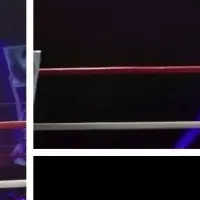
Baltimore Ravens Join Forces with RTS to Enhance Sustainability Efforts at M&T Bank Stadium
In an exciting development for fans of sustainability and sports alike, the Baltimore Ravens have partnered with Recycle Track Systems (RTS) to become the Official Waste and Recycling Partner at M&T Bank Stadium. This collaboration, announced on April 16, 2025, is set to last for three years and aims to revolutionize waste management at the stadium through advanced technologies and fan engagement initiatives.
The Ravens, who have a history of striving for excellence both on and off the field, are taking significant steps towards becoming a model of sustainability in the NFL. M&T Bank Stadium, already recognized for its eco-friendly efforts as a LEED Gold-certified venue, is currently recycling approximately 31% of its regular waste. With RTS stepping in, the goal is to significantly increase that percentage, making a meaningful impact on sustainability initiatives.
RTS plans to implement its AI-powered waste solutions to improve waste tracking and recycling efficiency. By introducing advanced analytics and real-time waste monitoring, the partnership aims to optimize waste diversion rates, minimize contamination, and enhance operational efficiency. This integration of technology and sustainability is set to set new benchmarks for waste management in professional sports venues, showing that innovation can lead to a more sustainable future.
A notable feature of this collaboration will be the introduction of Cycle reverse vending machines at M&T Bank Stadium. These intelligent machines encourage fans to deposit used beverage containers in exchange for incentives, creating a fun and engaging way to participate in recycling efforts. Although just the latest addition to the Ravens’ sustainability program, Cycle machines have been successfully implemented at other prestigious venues, including Citi Field (home of the New York Mets) and Lincoln Financial Field (where the Philadelphia Eagles compete). This step not only aims to enhance recycling rates at the stadium but also encourages fans to take an active role in the collective responsibility of waste management.
Beyond the stadium walls, the partnership between the Ravens and RTS extends a commitment to sustainability throughout Greater Baltimore. RTS will collaborate with local organizations, businesses, and community initiatives to amplify waste reduction efforts, promote recycling education, and implement impactful environmental programs in the region. This holistic approach signifies that the positive effects of sustainable waste management will extend well beyond game day, contributing to a cleaner, greener Baltimore.
Rich Tamayo, Senior Vice President of Stadium Operations and Guest Experience for the Ravens, emphasized the team's dedication: “We are excited about the opportunity to further grow our sustainability program at M&T Bank Stadium, where in 2025, we will divert even more trash through our already robust recycling and composting programs.”
Notably, RTS is not only focused on M&T Bank Stadium but is also known for providing efficient waste management services to other major venues across North America, like Kauffman Stadium, home of the Kansas City Royals. Their expertise in streamlined waste operations and sustainable practices ensures that the Ravens can achieve their environmental objectives while actively engaging with their fanbase.
Gregory Lettieri, the Co-Founder and CEO of RTS, stated that "MT Bank Stadium is setting a new benchmark for what's possible when innovation and sustainability come together." By leveraging data-driven insights and engaging fans, the Ravens and RTS are pursuing a future where smart and sustainable practices at the stadium will leave a lasting impact on both the venue and the surrounding community.
This partnership highlights the Ravens' commitment not only to leveraging technology for a better game-day experience but also for championing environmental responsibility, ensuring that the Baltimore community reaps the benefits of a greener future. As sports teams increasingly recognize their role in sustainability, initiatives like this one show how technology and community involvement can create significant positive changes that resonate well beyond the confines of game day activities.
The Ravens, who have a history of striving for excellence both on and off the field, are taking significant steps towards becoming a model of sustainability in the NFL. M&T Bank Stadium, already recognized for its eco-friendly efforts as a LEED Gold-certified venue, is currently recycling approximately 31% of its regular waste. With RTS stepping in, the goal is to significantly increase that percentage, making a meaningful impact on sustainability initiatives.
RTS plans to implement its AI-powered waste solutions to improve waste tracking and recycling efficiency. By introducing advanced analytics and real-time waste monitoring, the partnership aims to optimize waste diversion rates, minimize contamination, and enhance operational efficiency. This integration of technology and sustainability is set to set new benchmarks for waste management in professional sports venues, showing that innovation can lead to a more sustainable future.
A notable feature of this collaboration will be the introduction of Cycle reverse vending machines at M&T Bank Stadium. These intelligent machines encourage fans to deposit used beverage containers in exchange for incentives, creating a fun and engaging way to participate in recycling efforts. Although just the latest addition to the Ravens’ sustainability program, Cycle machines have been successfully implemented at other prestigious venues, including Citi Field (home of the New York Mets) and Lincoln Financial Field (where the Philadelphia Eagles compete). This step not only aims to enhance recycling rates at the stadium but also encourages fans to take an active role in the collective responsibility of waste management.
Beyond the stadium walls, the partnership between the Ravens and RTS extends a commitment to sustainability throughout Greater Baltimore. RTS will collaborate with local organizations, businesses, and community initiatives to amplify waste reduction efforts, promote recycling education, and implement impactful environmental programs in the region. This holistic approach signifies that the positive effects of sustainable waste management will extend well beyond game day, contributing to a cleaner, greener Baltimore.
Rich Tamayo, Senior Vice President of Stadium Operations and Guest Experience for the Ravens, emphasized the team's dedication: “We are excited about the opportunity to further grow our sustainability program at M&T Bank Stadium, where in 2025, we will divert even more trash through our already robust recycling and composting programs.”
Notably, RTS is not only focused on M&T Bank Stadium but is also known for providing efficient waste management services to other major venues across North America, like Kauffman Stadium, home of the Kansas City Royals. Their expertise in streamlined waste operations and sustainable practices ensures that the Ravens can achieve their environmental objectives while actively engaging with their fanbase.
Gregory Lettieri, the Co-Founder and CEO of RTS, stated that "MT Bank Stadium is setting a new benchmark for what's possible when innovation and sustainability come together." By leveraging data-driven insights and engaging fans, the Ravens and RTS are pursuing a future where smart and sustainable practices at the stadium will leave a lasting impact on both the venue and the surrounding community.
This partnership highlights the Ravens' commitment not only to leveraging technology for a better game-day experience but also for championing environmental responsibility, ensuring that the Baltimore community reaps the benefits of a greener future. As sports teams increasingly recognize their role in sustainability, initiatives like this one show how technology and community involvement can create significant positive changes that resonate well beyond the confines of game day activities.
Topics Sports)










【About Using Articles】
You can freely use the title and article content by linking to the page where the article is posted.
※ Images cannot be used.
【About Links】
Links are free to use.